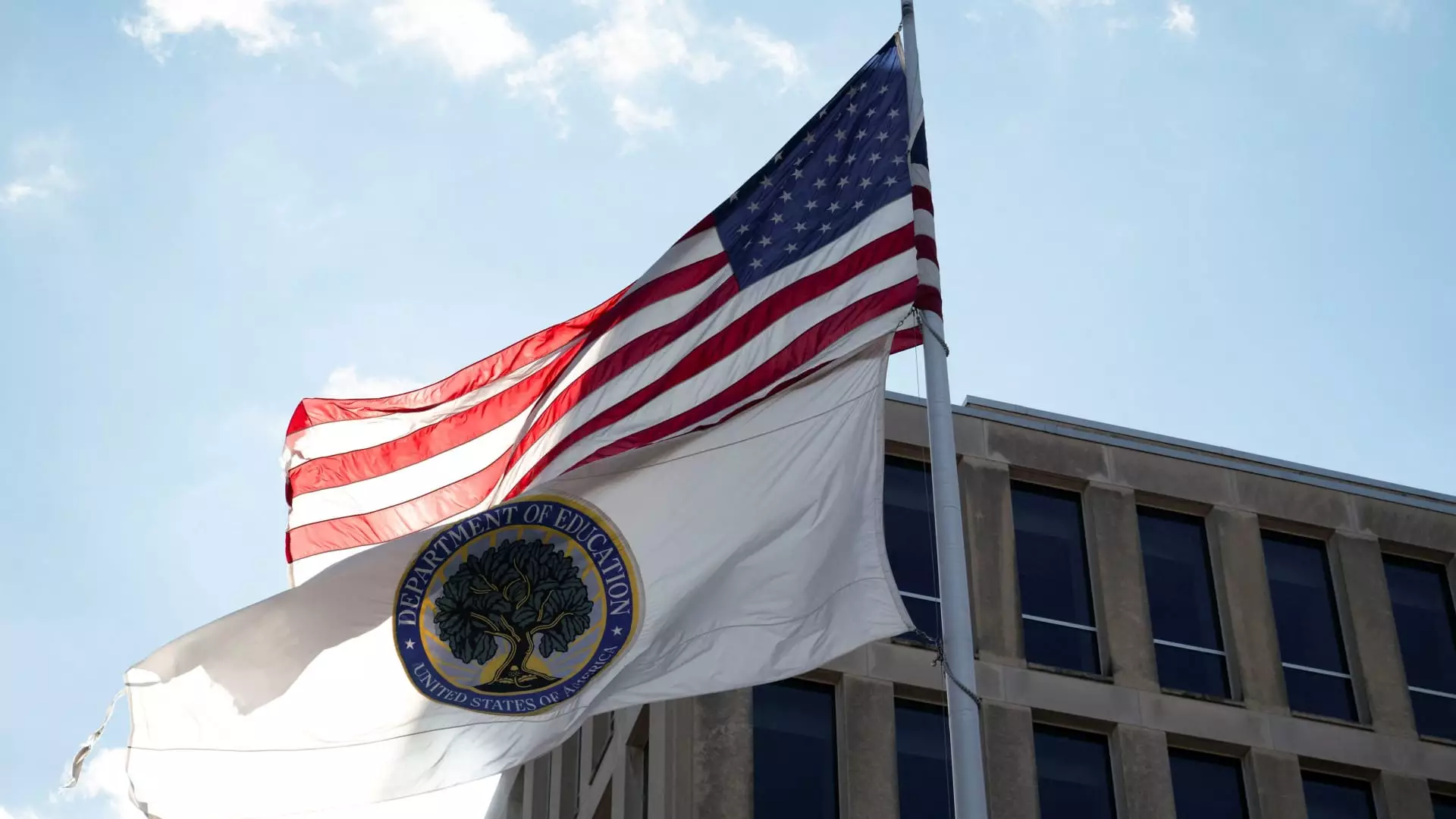In recent years, the future of the U.S. Department of Education has been a topic of intense discussion, especially with the Trump administration contemplating its dissolution. This situation has created an atmosphere of uncertainty and anxiety among the 42 million federal student loan borrowers across the country. With the department responsible for underwriting student loans and managing a massive $1.6 trillion education debt portfolio, any radical changes could have widespread repercussions on millions of American families seeking higher education.
The potential closure of the Department of Education raises critical concerns about the wellbeing of borrowers, as articulated by Betsy Mayotte, president of The Institute of Student Loan Advisors. She highlights that despite the possibility of structural changes, the actual obligation to repay student loans remains unchanged. This situation means the debts will still need to be serviced, irrespective of which agency oversees the student loan management. The emotional toll on borrowers is considerable; anxiety levels are soaring as they grapple with the potential ramifications of such sweeping changes to a system many depend on for their educational pursuits.
Moreover, the speculation surrounding an executive order to limit or abolish the department adds another layer of volatility. Though shuttering the agency would necessitate congressional action, the mere thought of such a move inherently leads to instability in an already complex system. Polling statistics reveal that a significant majority, approximately 61% of likely voters, oppose the Trump administration’s plans to use an executive order to dismantle the Education Department. This sentiment underscores a profound public concern for those affected by student loans, suggesting that any actions in this direction may meet with substantial pushback.
The U.S. Department of Education, established by former President Jimmy Carter in 1979, has long faced existential threats, notably from conservative administrations. Previous attempts at downsizing or restructuring the department, such as Ronald Reagan’s calls for its termination and Trump’s earlier efforts to merge it with the Labor Department, reflect a historical pattern of skepticism toward federal involvement in education. While these efforts have generally stalled, the current climate hints at a renewed vigor in these discussions, raising alarm bells for stakeholders within the education sector.
Although the Trump administration has reiterated a commitment to reevaluate the future of the department, the practical implications of such a decision could lead to unintended consequences. In addition, as highlighted by several education advocates, the ramifications of closing the department would extend beyond policy debate into the realm of real-world impact on families and students who rely on financial aid to facilitate their education.
If the Department of Education were to cease operations, speculations regarding which agency might take over its functions have emerged. Many experts suggest that the Treasury Department could seamlessly transition into the role of managing student debt, given its existing financial capabilities. However, this potential shift invites skepticism regarding the efficacy and focus of a department primarily dedicated to fiscal management rather than educational concern. Alternatively, other agencies, such as the Justice Department or Department of Labor, may assume roles traditionally held by the Education Department, but this could complicate processes rather than streamline them.
Consumer advocates remain wary, especially considering the recent trends towards privatizing student loans. Such privatization may strip students of crucial borrower protections currently integral to federal loans. The anxiety surrounding these changes is further compounded by enduring challenges in the federal student loan system, which is already characterized by bureaucratic inefficiencies and a lack of oversight.
Michele Shepard Zampini, senior director of College Affordability at The Institute For College Access and Success, expresses her concerns about the potential chaos that could arise from transferring tens of millions of loan accounts to a different federal agency. The prospect of significant disruption weighs heavily on the minds of current and prospective students who depend on timely access to financial aid to manage their educational ambitions. As Zampini asserts, the ramifications of such disruption could severely hinder students’ ability to pursue higher education, accentuating the interconnectedness of fiscal operations with students’ academic futures.
The potential restructuring of the U.S. Department of Education signifies a critical moment for student loan borrowers. Immediate reactions from stakeholders reflect deep-seated anxieties regarding both the stability of existing loan systems and the broader implications of governmental intervention in education. If the administration moves forward with plans to diminish or terminate the department, the consequences are likely to extend far beyond policy changes, impacting the lives and futures of millions who rely on these financial instruments for their educational journeys.

